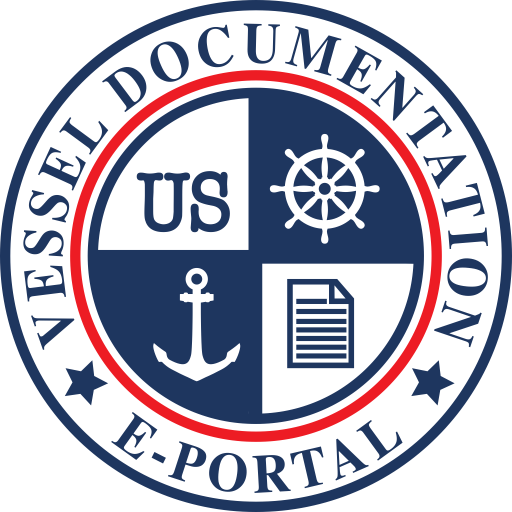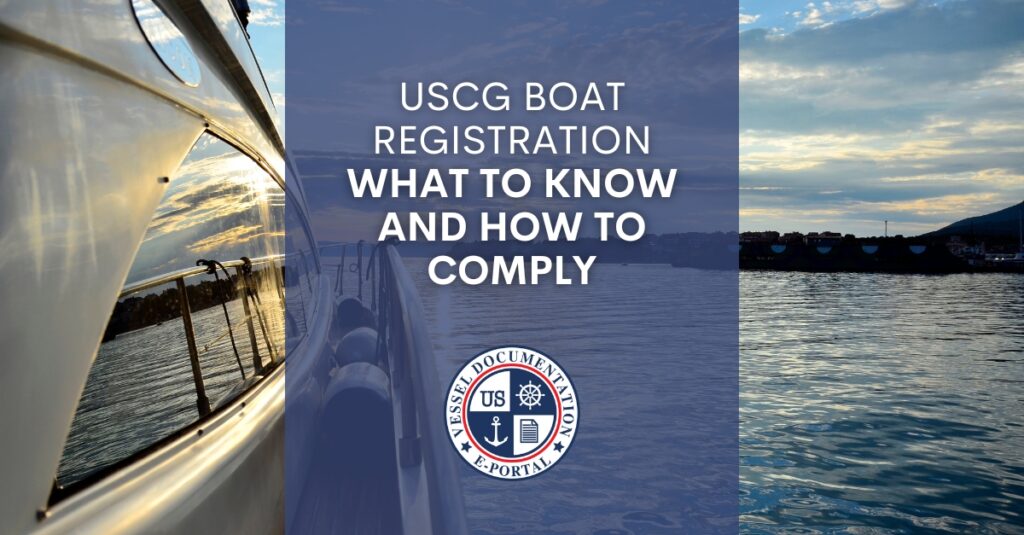Knowing the ins and outs of USCG boat registration is more than just a matter of compliance—it’s about ensuring your vessel is operating within federal maritime standards while opening the door to certain privileges. Whether you’re a new boat owner trying to determine whether documentation applies to you or a longtime operator seeking clarity on your ongoing responsibilities, this overview is designed to guide you through the entire process.
Here at CG Portal, we offer streamlined, user-friendly access to the documentation process, helping to eliminate much of the confusion and delays that can come with it.
Who Is Required to Document Their Vessel With the USCG
Not every boat in the United States is required to undergo Coast Guard documentation, but some vessels must. Generally, any vessel that is five net tons or more and used in commercial activity must be documented with the USCG. The five net ton threshold is not a weight measure but a volume-based one; in practical terms, most vessels over 26 feet in length meet this requirement.
If you’re operating your vessel for fishing, coastwise trade, or transporting passengers for hire, federal documentation is not optional—it’s mandatory. In these cases, you are not permitted to rely solely on state registration.
CG Portal offers access to the necessary forms and processing options for documenting these vessels. Whether your vessel is new to commercial service or has changed owners, the portal provides the tools needed to complete the process correctly.
USCG Boat Registration As a Voluntary Option
Boat owners who are not using their vessels for commercial purposes but own eligible vessels (five net tons or more) may still choose to document them with the Coast Guard. This is particularly common among owners who wish to secure financing for a vessel, as lenders often require documentation. Another reason to document a recreational vessel is to establish the boat’s nationality under U.S. law, which can be important when traveling internationally.
For these owners, the decision often comes down to convenience and benefits. Unlike state registration, federal documentation stays with the vessel regardless of changes in ownership or relocation across states. CG Portal makes the voluntary documentation process straightforward, guiding recreational owners from initial application through renewals.
What USCG Boat Registration Entails: Responsibilities and Compliance
Once your vessel is documented, there are certain responsibilities that come along with it. These aren’t necessarily burdensome, but they are important to understand and maintain.
You are required to:
- Display your vessel’s name and hailing port clearly on the hull (usually on the stern) in letters of at least four inches in height.
- Keep a valid Certificate of Documentation (COD) onboard whenever the vessel is operating.
- Renew your COD annually or apply for multi-year renewal, depending on your eligibility.
- Notify the USCG of any changes to the vessel’s ownership, physical characteristics, or endorsements.
Failure to meet these responsibilities can lead to administrative delays, fines, or the invalidation of your vessel’s documentation.
CG Portal supports vessel owners by offering reminders, rush processing, and multi-year renewal options, reducing the chances of falling behind on essential requirements.
How State Registration and USCG Boat Registration Differ
A key distinction between state registration and USCG documentation lies in jurisdiction. State registration varies by state and is required if your vessel doesn’t qualify for or choose federal documentation. These vessels display a state-issued hull number, and owners must pay fees and follow local titling and registration laws.
Federally documented vessels, on the other hand, do not receive a state registration number. Instead, they are identified by their documentation number and their certificate from the Coast Guard. Federally documented vessels follow federal laws on safety, inspection, and navigation, but may avoid certain state-level rules.
CG Portal specifically assists with federal documentation—not with state registration. If your vessel needs USCG documentation, CG Portal helps you complete forms, endorsements, and filings to stay compliant.
USCG Boat Registration: The Benefits
Boat documentation offers several distinct benefits that extend beyond regulatory compliance. One of the most important is the ability to obtain a Preferred Ship Mortgage. Financial institutions commonly require documentation before issuing a maritime mortgage because it provides a publicly accessible ownership record.
Documentation also ensures your vessel is recognized internationally as a U.S. flagged vessel. This is beneficial for those who plan to cruise in foreign waters or conduct operations in international jurisdictions. In addition, USCG documentation can simplify the process of selling or transferring ownership of a vessel, especially across state lines.
CG Portal provides access to forms for transfers or mortgage filings, making documentation transactions faster and more accurate.
How Boat Usage Affects Documentation Needs
It’s worth emphasizing that your vessel’s function will shape what documentation or registration is required. Recreational vessels used only personally face fewer rules than boats carrying passengers or operating commercially. Similarly, a fishing vessel operating in U.S. waters has very specific federal requirements that vary from a yacht traveling abroad.
If the vessel’s use changes—say, a recreational vessel is converted into a charter fishing operation—that change must be reflected in your USCG documentation. CG Portal offers support in amending your endorsement so that your vessel’s paperwork accurately represents how it is being used.
Federal USCG Boat Registration Provides Consistency Across States
State registration rules can vary widely. What’s required in one state may be different from what’s enforced in another. Federal documentation, however, offers a standard across all jurisdictions. This makes it especially useful for boaters who move between states or conduct long-distance trips.
Instead of learning every state’s rules, documented boaters keep consistent, nationwide records across all U.S. jurisdictions. CG Portal helps you keep documentation current, no matter your location or where you sail next.
A Portal to Meet All of Your USCG Boat Registration Needs
Understanding the responsibilities and advantages of USCG boat registration is the first step toward protecting your investment and staying in compliance. Whether you’re new to boating or upgrading to a vessel that meets documentation requirements, having the right tools and support makes all the difference.
CG Portal is here to help ensure your documentation process is simple, accurate, and timely. From eligibility questions to renewal support, the portal offers a streamlined path to get your vessel documented and keep it that way.

